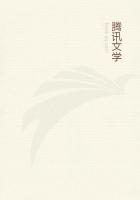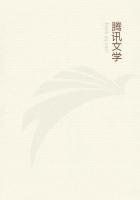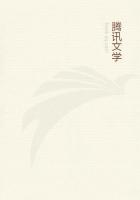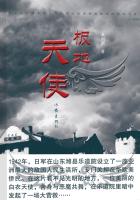"No," said he, "there is not one of that family at Llangollen, but I believe there are some in Flintshire, at a place called Holywell, where there is a pool or fountain, the waters of which it is said they worship.""And so they do," said I, "true to the old Indian superstition, of which their religion is nothing but a modification. The Indians and sepoys worship stocks and stones, and the river Ganges, and our Papists worship stocks and stones, holy wells and fountains."He put some questions to me about the origin of nuns and friars. Itold him they originated in India, and made him laugh heartily by showing him the original identity of nuns and nautch-girls, begging priests and begging Brahmins. We passed by a small house with an enormous yew-tree before it; I asked him who lived there.
"No one," he replied, "it is to let. It was originally a cottage, but the proprietors have furbished it up a little, and call it Yew-tree Villa."
"I suppose they would let it cheap," said I.
"By no means," he replied, "they ask eighty pounds a year for it.""What could have induced them to set such a rent upon it?" Idemanded.
"The yew-tree, sir, which is said to be the largest in Wales. They hope that some of the grand gentry will take the house for the romance of the yew-tree, but somehow or other nobody has taken it, though it has been to let for three seasons."We soon came to a road leading east and west.
"This way," said he, pointing in the direction of the west, "leads back to Llangollen, the other to Offa's Dyke and England."We turned to the west. He inquired if I had ever heard before of Offa's Dyke.
"Oh yes," said I, "it was built by an old Saxon king called Offa, against the incursions of the Welsh.""There was a time," said my companion, "when it was customary for the English to cut off the ears of every Welshman who was found to the east of the dyke, and for the Welsh to hang every Englishman whom they found to the west of it. Let us be thankful that we are now more humane to each other. We are now on the north side of Pen y Coed. Do you know the meaning of Pen y Coed, sir?""Pen y Coed," said I, "means the head of the wood. I suppose that in the old time the mountain looked over some extensive forest, even as the nunnery of Pengwern looked originally over an alder-swamp, for Pengwern means the head of the alder-swamp.""So it does, sir, I shouldn't wonder if you could tell me the real meaning of a word, about which I have thought a good deal, and about which I was puzzling my head last night as I lay in bed.""What may it be?" said I.
"Carn-lleidyr," he replied: "now, sir, do you know the meaning of that word?""I think I do," said I.
"What may it be, sir?"
"First let me hear what you conceive its meaning to be," said I.
"Why, sir, I should say that Carn-lleidyr is an out-and-out thief -one worse than a thief of the common sort. Now, if I steal a matrass I am a lleidyr, that is a thief of the common sort; but if I carry it to a person, and he buys it, knowing it to be stolen, Iconceive he is a far worse thief than I; in fact, a carn-lleidyr.""The word is a double word," said I, "compounded of carn and lleidyr. The original meaning of carn is a heap of stones, and carn-lleidyr means properly a thief without house or home, and with no place on which to rest his head, save the carn or heap of stones on the bleak top of the mountain. For a long time the word was only applied to a thief of that description, who, being without house and home, was more desperate than other thieves, and as savage and brutish as the wolves and foxes with whom he occasionally shared his pillow, the carn. In course of time, however, the original meaning was lost or disregarded, and the term carn-lleidyr was applied to any particularly dishonest person. At present there can be no impropriety in calling a person who receives a matrass, knowing it to be stolen, a carn-lleidyr, seeing that he is worse than the thief who stole it, or in calling a knavish attorney a carn-lleidyr, seeing that he does far more harm than a common pick-pocket; or in calling the Pope so, seeing that he gets huge sums of money out of people by pretending to be able to admit their souls to heaven, or to hurl them to the other place, knowing all the time that he has no such power; perhaps, indeed, at the present day the term carn-lleidyr is more applicable to the Pope than to any one else, for he is certainly the arch thief of the world. So much for Carn-lleidyr. But I must here tell you that the term carn may be applied to any who is particularly bad or disagreeable in any respect, and now I remember, has been applied for centuries both in prose and poetry. One Lewis Glyn Cothi, a poet, who lived more than three hundred years ago, uses the word carn in the sense of arrant or exceedingly bad, for in his abusive ode to the town of Chester, he says that the women of London itself were never more carn strumpets than those of Chester, by which he means that there were never more arrant harlots in the world than those of the cheese capital. And the last of your great poets, Gronwy Owen, who flourished about the middle of the last century, complains in a letter to a friend, whilst living in a village of Lancashire, that he was amongst Carn Saeson. He found all English disagreeable enough, but those of Lancashire particularly so -savage, brutish louts, out-and-out John Bulls, and therefore he called them Carn Saeson.""Thank you, sir," said my companion; "I now thoroughly understand the meaning of carn. Whenever I go to Chester, and a dressed-up madam jostles against me, I shall call her carn-butein. The Pope of Rome I shall in future term carn-lleidyr y byd, or the arch thief of the world. And whenever I see a stupid, brutal Englishman swaggering about Llangollen, and looking down upon us poor Welsh, Ishall say to myself Get home, you carn Sais! Well, sir, we are now near Llangollen; I must turn to the left. You go straight forward.
I never had such an agreeable walk in my life. May I ask your name?"I told him my name, and asked him for his.
"Edward Jones," he replied.

